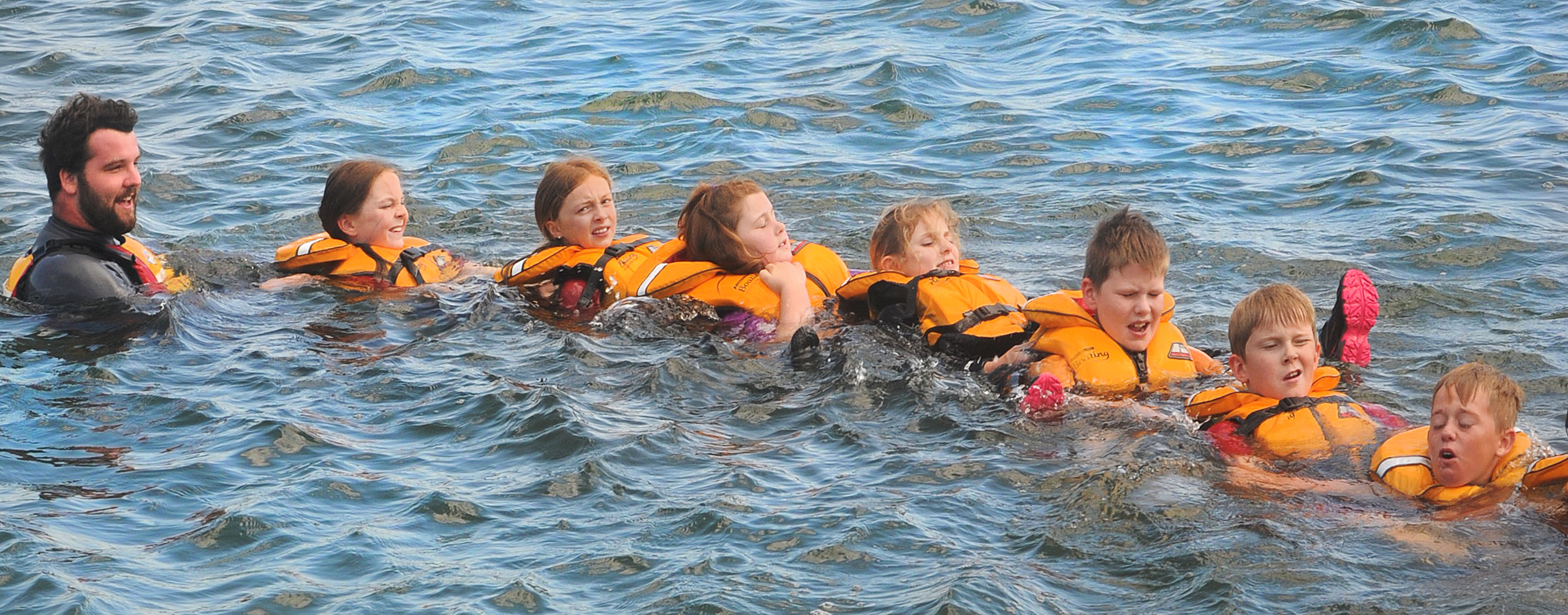
The intensive week-long programme, a research project by Associate Prof Chris Button, Dean of the School of Physical Education, Sport and Exercise, is aimed at filling the gap in children's open water survival skills.
In total, almost 120 children, mainly from Dunedin, have been learning about open water conditions and experiencing them ''in a fun and engaging way''.
Fifty-seven children aged between 7 and 11, undertook the programme earlier this month, another 60 taking part this week.
The free programme covers a variety of important topics such as float and control breathing, how to attract help in an emergency, underwater swimming to retrieve an object, fitting a life jacket appropriately, understanding river features such as currents, obstacles and unseen hazards, beach games, and awareness of appropriate behaviour in the event of a boat capsizing.
Yesterday's sessions were at Otago Harbour where experienced Swimsation instructors from Moana Pool took the group through the theory of what they would be doing in the harbour before the children entered the water to put the theory into practice.
Today's session will involve river survival skills at Outram Glen and tomorrow the group will be learn surf survival skills at Brighton Beach.
An assessment at the Taieri College Pool on Friday will be followed by another post-assessment in about three months.
The children's knowledge and physical competency was assessed at the start of the programme.
Prof Button, whose interest is in motor learning, says children learn well and quickly and ''hopefully, they will retain what they learn on the programme''.
He said he developed the project because previously the focus had been on children learning to swim in swimming pools and he thought it would be better for them to learn how to swim and survive in open water, such as a harbour, a river and an ocean beach.
The programme was primarily a research project and the data would be provided to Water Safety New Zealand, Swimsation and other interested organisations.












